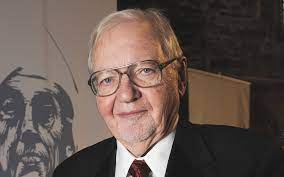Jameson, Fredric

Bio: (1934-) American political and literary theorist. Frederick Jameson received his doctorate from Yale University and taught at Duke University. After studying Jean-Paul Sartre and French literary criticism, as well as the idea of the New Left, Jameson developed his own neo-Marxist version of literary criticism. The influences of structuralism, poststructuralism, postmodernism, and psychoanalysis are visible in his books. The basis of his theoretical approach is the dual hermeneutics of ideology and utopia based on Marxism. With the help of this dual hermeneutics, he criticizes the existing society and ideological components of cultural texts and creates a basis for the development of utopian thought and a vision of a better society. Jameson always places the categories and phenomena he explores in the historical context in which they arose. In addition to historical analysis of phenomena, he uses utopian thinking to find hope for a better future in literature, philosophy, and other texts with cultural content. The third analytical method he uses totalizing (synthesizing) approach that represents a systematic framework for the dialectical and critical study of cultural studies and theories of history.
Jameson is best known for his book Postmodernism, or, The Cultural Logic of Late Capitalism (1991), in which he explores how postmodern culture is linked to the advanced stage of capitalism. He observes the development of capitalism through three phases: market capitalism, monopoly capitalism, and multinational capitalism. Each of these phases of capitalism was marked by different cultural forms: realism, modernism, and postmodernism. After 1945, the period of late capitalism begins and it represents the purest form of capitalism. The expansion of multinational capital leads to the penetration of culture into all areas of society. Thus postmodern cultural production penetrates all areas of late-capitalist society, erasing the boundaries between different structures. Postmodernism is based on reducing the differences between all social areas that become accultured and prevent the emergence of independent forms. Postmodernism is a cultural field of force where coexisting and diverse elements are brought together in structural unity. There is totalizing and pervasive acculturation at work that assimilates and integrates all different cultural forms.
Fields of research
Aggression Art Capitalism Culture Ideology Language Market Monopoly, Economic Postmodernism Psychology UtopiaTheoretical approaches
Postmodern TheoryMain works
Sartre: Origin of a Style (1961);
Marxism and Form (1970);
The Prison-House of Language (1972);
Fables of Aggression: Wyndham Lewis, the Modernist as Fascist (1979);
The Political Unconscious: Narrative as a Socially Symbolic Act (1981);
Late Marxism (1990a);
Postmodernism, or, The Cultural Logic of Late Capitalism (1991);
Brecht and Method (2000);
A Singular Modernity (2002);
The Ancients and the Postmoderns: On the Historicity of Forms (2015).

